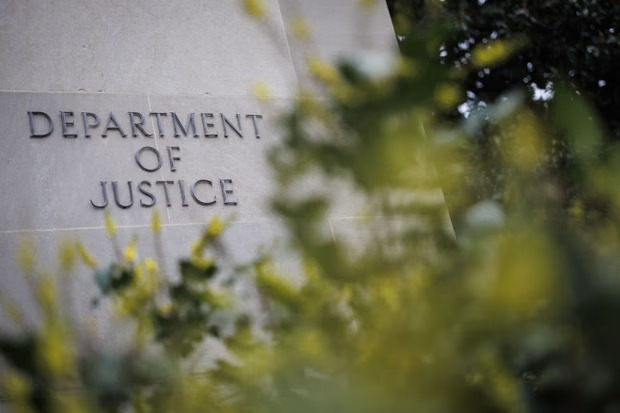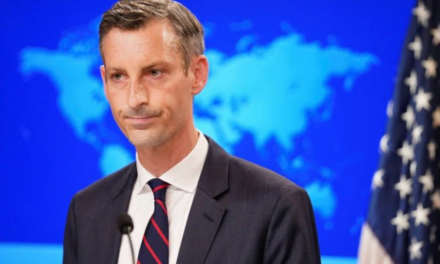Just days after conservative activist Charlie Kirk was assassinated, the U.S. Justice Department quietly deleted from its website a study showing that far-right extremists have committed far more deadly attacks than far-left or radical Islamist extremists.
The paper, “What NIJ Research Tells Us About Domestic Terrorism,” was produced by the National Institute of Justice and had been one of the department’s most comprehensive looks at domestic extremism.
It concluded, “Militant, nationalistic, white supremacist violent extremism has increased in the United States. In fact, the number of far-right attacks continues to outpace all other types of terrorism and domestic violent extremism. , far-right extremists have committed far more ideologically motivated homicides than far-left or radical Islamist extremists, including 227 events that took more than 520 lives. In this same period, far-left extremists committed 42 ideologically motivated attacks that took 78 lives.”
Archived snapshots show the report was still online on September 11 but gone the following day. The Justice Department has not explained its removal.
One of the cited authors declined to comment when contacted by reporters. Other studies on far-right extremism remain available, but this one vanished just as political rhetoric around Kirk’s murder escalated.
Kirk, the 31-year-old founder of Turning Point USA and a prominent Trump ally, was shot dead on September 10 while speaking at Utah Valley University.
Tyler Robinson, 22, has been charged with aggravated murder; prosecutors are seeking the death penalty. In the aftermath, Donald Trump and other Republicans blamed “radical left” elements for the attack.
“For years, those on the radical left have compared wonderful Americans like Charlie to Nazis and the world’s worst mass murderers and criminals. This kind of rhetoric is directly responsible for the terrorism that we’re seeing in our country today, and it must stop,” Trump said.
Utah’s Republican Governor Spencer Cox called the killing “an attack on all of us. It is an attack on the American experiment. It is an attack on our ideals.” The White House announced it would pursue an alleged left-wing “domestic terror movement” after Kirk’s death, a move critics fear could be used to stifle political dissent.
Independent research backs up the deleted report. The Center for Strategic and International Studies found that “rightwing attacks and plots account for the majority of all terrorist incidents in the United States since 1994.”
In congressional testimony, Heidi Beirich of the Global Project Against Hate and Extremism “Data on acts of political violence clearly shows that it is the far right that is driving terrorism in the US, including targeting and, in certain cases, murdering law enforcement. That is not to say there is no violence from far left actors, it is just simply not on the scale or as deadly as what is coming from far right actors.”
For Muslim American communities, the removal of such a study has particular significance. These communities have long condemned terrorism and worked to prevent radicalization within their own populations.
The deleted findings, which documented that far-right extremists have killed far more Americans than radical Islamist extremists, counter narratives that disproportionately blame Muslims for domestic terrorism.
Erasing this data risks distorting public understanding, reinforcing Islamophobic narratives, and undermining policies aimed at addressing all forms of domestic threats equitably.
Former President Barack Obama warned during a recent interview in Pennsylvania: “We are certainly at an inflection point, not just around political violence, but there are a host of larger trends that we have to be concerned about. I think it is important for us, at the outset, to acknowledge that political violence is not new. It has happened at certain periods in our history, but it is something that is anathema to what it means to be a democratic country.”
The disappearance of the DOJ report, coming so soon after Kirk’s assassination, has sparked a wider debate over transparency, political violence and the narratives that shape U.S. counterterrorism policy. For many observers, including American Muslim readers, it raises an uncomfortable question: whose safety, and whose reality, counts when the government decides which facts stay online.
By Kanza Emaan














